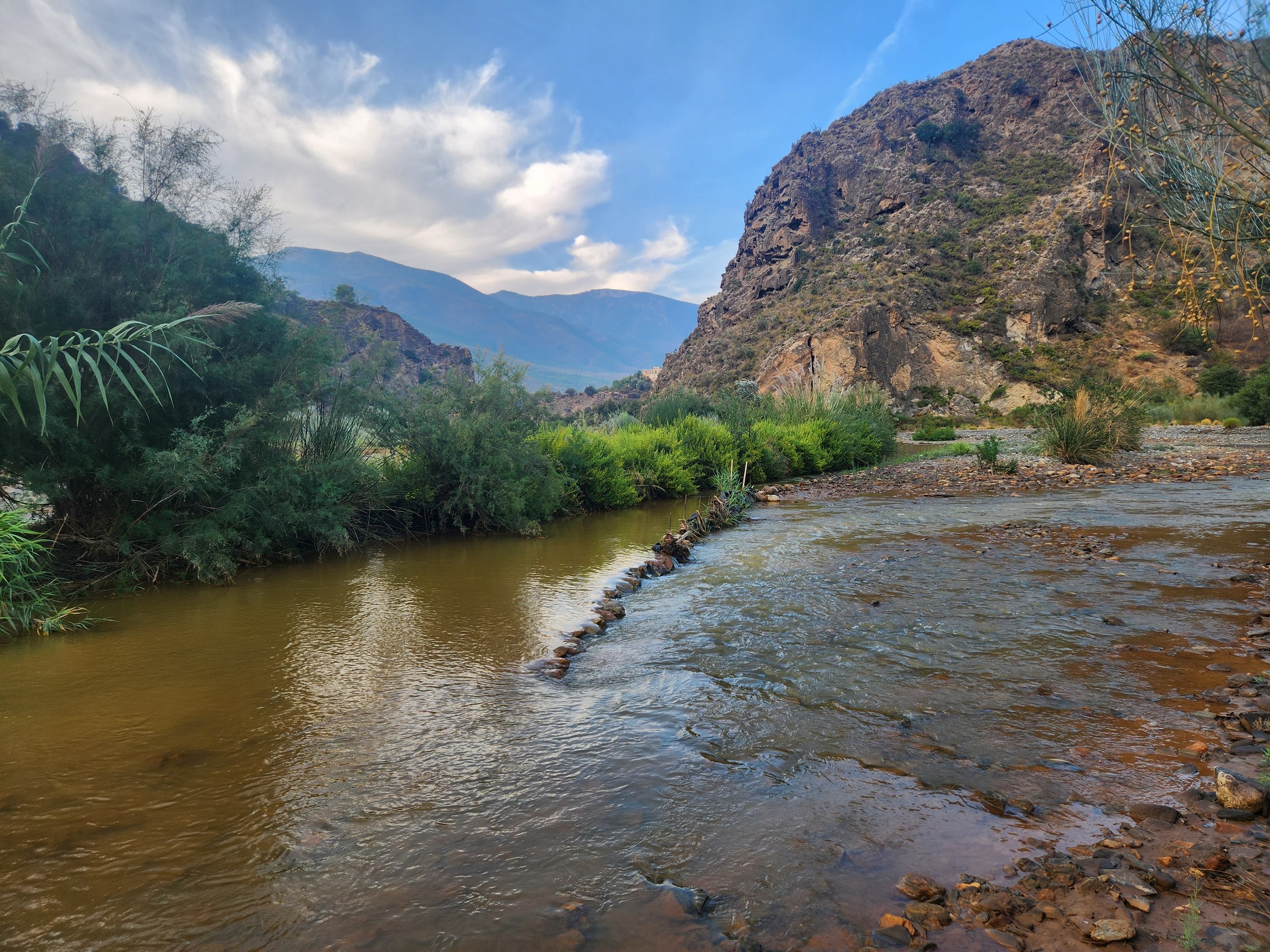
Water
Our arid regions hold generations of wisdom regarding sophisticated water usage, storage, and recycling. These tools are essential today as we remodel our agricultural operations to adapt to resource scarcity.
Water is necessary in every ecological and agricultural feat, and according to the permaculture Scale of Permanence, vegetation should not be planted without first evaluating and planning for responsible water usage. Determining techniques for irrigation, and for water retention, harvesting, and reuse is an essential first step in any project we take on.
Our Team is particularly inspired by ancient water systems of Islamic lands - the Falaj, Acequia, and Qanat systems - which use precision engineering and physics to utilize every drop of water effectively, while benefitting surrounding ecosystems directly and indirectly.
We also emphasize watershed regeneration and groundwater recharge as important elements of any large-scale land restoration or agricultural project.
"Water literacy is a need of the hour.” Dr. Rajendra Singh
Water Retention Landscape
We work with techniques of terraformation and earthworks to design landscape that can effectively retain water and harvest rain, leading cascading runoff through different layers of vegetation accordingly. We work with the rainwater harvesting principles of Slow, Spread, Sink to ensure as much water is being harvested by vegetation, and regenerating water stored in the ground.
We also foster water retention through our engagement with soil, increasing biomass and water retaining life in soil is a massively crucial element of effective water usage.
These nature-based solutions are technologically simple, and yet they foster incredible results both above above and below ground.
Irrigation
When it comes to best utilizing water on a site, various irrigation techniques are required, and the combination of cutting edge technological solutions with nature-based wisdom is our preferred approach. Because water scarcity is a matter of such extreme ramifications, we must use every tool available to ensure effective and sustainable irrigation. It is also important to design systems of durability and adaptability, which means biological and physics based solutions are favored over mechanical solutions, and living systems increase in their resilience while mechanical systems degrade over time.



